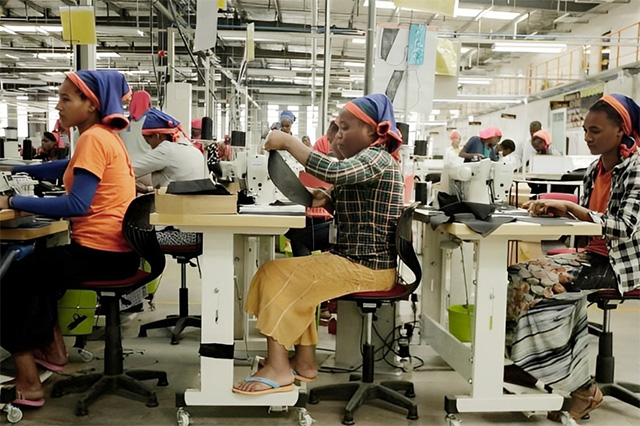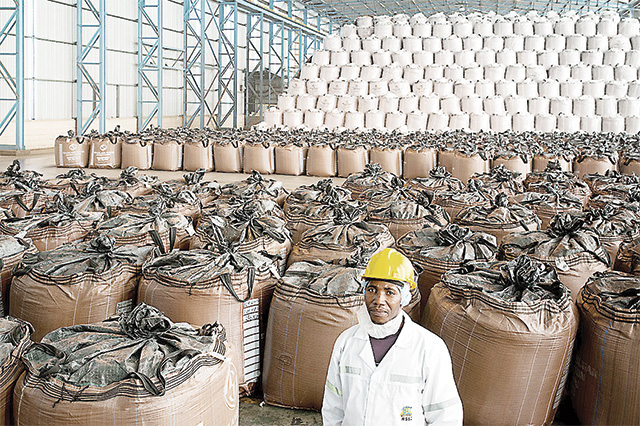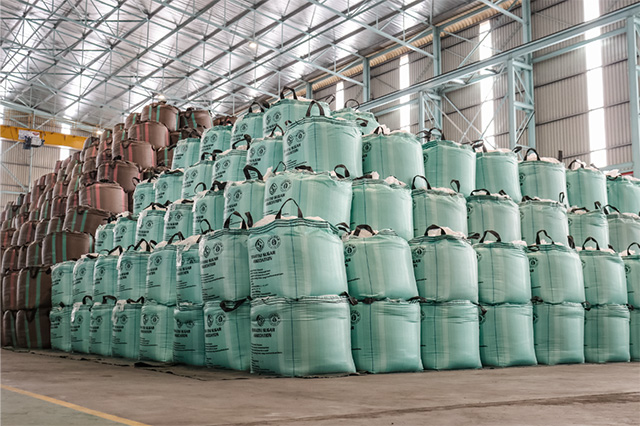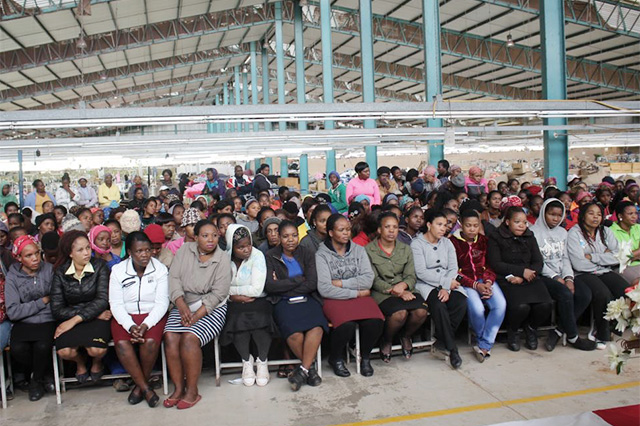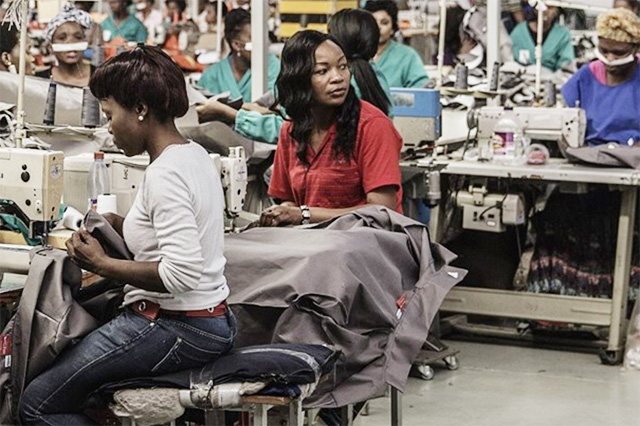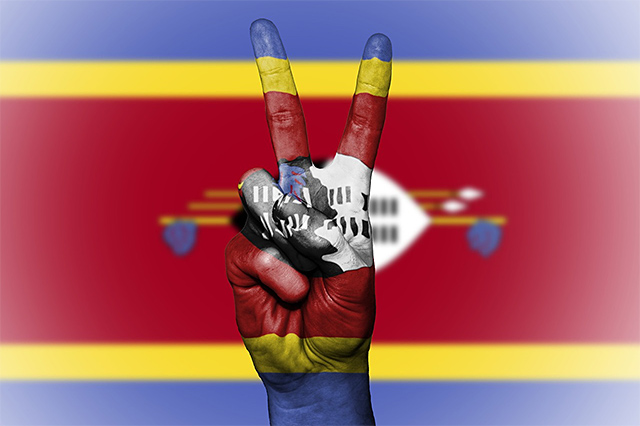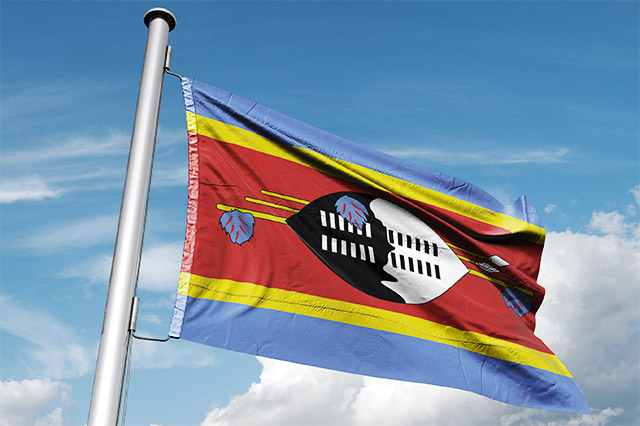Swaziland: Did government underestimate impact of AGOA loss?
Despite being given a grace period of almost six months, government still failed to meet the deadline for its African Growth and Opportunity Act (AGOA) review; and now it’s a race against time to meet the next deadline in a few weeks.
Already the impact of the loss is being felt. In the last two weeks, over 1 000 employees in the textile industry lost their jobs while thousands more will be out of jobs in the next few weeks.
The companies see no value in continuing with operations without any orders for their products, so the directors are now cutting their losses and closing shop.
The outrage, misery, frustrations and accusations flying from all corners could have been avoided had government complied with the benchmarks set by the United States government to remain eligible for trade privileges under AGOA.
Swaziland was first put in the spotlight in 2002 when the American Federation of Labour - Congress of Industrial Organisations (AFL-CIO) filed a petition calling on the US Trade Department to remove the country from AGOA.
The petition was drawn up and submitted in December 2002 with assistance from the Swaziland Federation of Trade Unions (SFTU) and accepted by the US government in September 2003, with the promise to send an inspection team to come to Swaziland.
Then Minister of Enterprise and Employment Lutfo Dlamini called a press conference to announce that government had hired lobbyists in Washington who had helped Swaziland recover its eligibility status after withdrawal of the Industrial Relations Act that severely curtailed union activity.
US Ambassador to Swaziland Makila James said earlier this year that the Swaziland government had known since 2001 that the United States had concerns regarding certain legislations and the kingdom had always given assurance that “something was being done”.
Every year, the office of the US Trade Representative conducts an annual review of the eligibility of sub-Saharan African countries to receive benefits under AGOA.
For this year’s review, public comments which are also considered in developing recommendations on AGOA country eligibility for 2015 were due no later than October 25.
If the president of the United States determines that a beneficiary is not making continual progress in meeting the eligibility requirements, the designation of that country as a beneficiary is terminated.
The review for Swaziland’s eligibility was not conducted in 2013 to allow time for the new Parliament and Cabinet to take up office and address the issues that had been raised as key concerns by the US government.
It was postponed until May 15 this year. In April 2014, representatives from the US Trade Department met with senior government officials in the country, including Prime Minister Sibusiso Dlamini, over the country’s eligibility status as an AGOA beneficiary.
The meetings assessed progress made by government in implementing five benchmarks related to Swaziland’s continued eligibility for AGOA concerning labour and political rights law and regulation, before the deadline in May when the US inter-agency committee reconvened to look at whether the country had fully complied.
In April, Minister of Labour and Social Security Winnie Magagula explained the importance of the Industrial Relations (Amendment) Bill to parliamentarians when she tabled it. However, it was later withdrawn for further amendments.
The House of Assembly then gave Magagula 10 days within which to return the Bill, but nothing happened until the deadline and Swaziland was removed from its AGOA eligibility status. Discussing the issue early in the year, the prime minister came down hard on individuals who “inform international bodies that Swazis are not allowed to talk freely. Let us blame ourselves if Swazis lose AGOA and not the US or ILO.”
He said no matter what government did, if Swazis continued to lie then a lot would be lost. Adding, Dlamini said the laws that needed amending would be passed by parliamentarians. “We will do all we can not to lose AGOA, but woe unto those who continue to lie about Swaziland.”
Then in June, the prime minister said the country was addressing the issue and making attempts to attend to all the recommendations made by the Americans so that the country could be regain its eligibility.
“On the other hand, we are also waiting for their response on where the country stands as we informed them on what we were doing,” he said. Later that month, the PM said government had not yet received official communication from the United States on Swaziland’s AGOA eligibility status.
Magagula, on the other hand, informed the ILO annual conference that Swaziland was doing all it could to implement the five conditions. In October, the PM once again assured the nation that government was leaving no stone unturned in making sure the country regains its AGOA status.
He said government’s serious stance on achieving this had been illustrated by key requirements such as the Industrial Relations (Amendment) Bill which had been tabled earlier that month.
The race against time is still on again as the annual review for all countries will be held next month. To regain its eligibility status, Swaziland must (by December 2014) review:
- Full passage of the amendment to the Industrial Relations Act allowing for the registration of trade union and employer federations.
- Full passage of the amendment to the Suppression of Terrorism Act.
- Full passage of the amendment to the Public Order Act allowing for the full recognition of freedom of assembly, speech and organisation.
- Full passage of the amendments to sections 40 and 97 of the Industrial Relations Act.
- Dissemination and implementation of the code of good practice on protest and industrial action.
So far, the country has still to address the benchmark on the Suppression of Terrorism Act. The Industrial Relations Bill was recently passed in Parliament. There has been criticism in and out of the United States that Swaziland’s beneficiary status undermines America’s self-proclaimed principles of democracy promotion.
Before the May deadline, the US Ambassador to Swaziland told the Sunday Observer that the impact of Swaziland losing its AGOA eligibility status would be felt sooner than 2015. “The economic impact is going to be much sooner than the end of the year,” she said, citing the fact that many textile companies that export goods to the US market usually placed their orders between June and July.
James said the companies might therefore not wait until the end of the year to decide on whether to continue business in Swaziland or not.
SD to lose over E500m in exports to US
If textile companies stop selling to the United States market, the country could lose over E500 million in export revenue.
Last year, Swaziland exported $49.749 million (about E500 million) worth of textile apparel to the United States, which was a decline of 16.88 percent from the $59.855 million (about E600 million) worth of exports in 2012.
Swaziland historically has had a small garment sector that mainly catered to the South African market. The coming into effect of AGOA’s apparel provisions in 2001 led to an increase, through foreign direct investment (FDI) notably from the Far East. At its peak, in early 2004, the sector provided about one quarter of formal employment.
The bulk of the garment sector’s output consists of quota-constrained basic items such as trousers and T-shirts, sold to high-volume discount chains in the US Swaziland’s garment exports have particularly benefitted from AGOA’s ‘third party fabric provision’ granted to least-developed countries (LDCs). Under this provision, Swaziland is allowed to import inputs from non-members of AGOA without repercussions for its quota-free access to the US market. With relevant US import tariffs at more than 15%, on average and with foreign inputs accounting for at least 50% of total costs, value added in Swaziland is effectively protected at a rate of 30% or more.
Producers in Swaziland started reporting steep declines in garment exports and unofficial estimates suggested that some 15 000 jobs (about half of the sector) have been lost since early 2004. Swaziland’s external competitiveness is strongly influenced by its currency peg to the South African rand.
On the one hand, this arrangement has precluded any exchange rate movement against Swaziland’s main trading partner, SA.
Conditioned by this regime, domestic price movements in SD have been largely similar to those in SA. On the other hand, between 2002 and 2004, the strength of the rand combined with the general depreciation of the US dollar led to a sizable appreciation of the lilangeni relative to the dollar, by 50% in nominal terms and 24% in real effective terms.
In the case of SD, profit margins of many Swazi exporters, being price takers in international markets, are likely to have been squeezed by the lilangeni's strong appreciation. During 2005, the lilangeni weakened against the US dollar by about 13%, partly offsetting the earlier appreciation.



